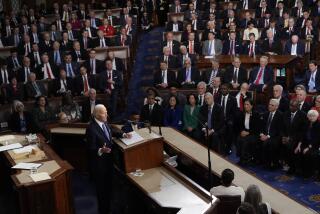Medi-Cal to Cut Costs, Drop Zantac : Pharmaceuticals: It also will no longer provide reimbursements for Axid ulcer medicine.
California began what could be a nationwide effort to cut pharmaceutical costs by saying it will no longer reimburse doctors who treat elderly patients with Glaxo Holdings’ medication Zantac because of its high cost.
Glaxo’s Zantac is the best-selling prescription drug ever marketed, with revenue of $3 billion a year.
Analysts said the move could signal the beginning of a trend throughout the country for states to go “drug shopping,” forcing pharmaceutical companies to submit low bids and then denying the higher-priced ones state funding.
Medi-Cal, California’s state medical retirement fund, also removed Eli Lilly & Co.’s Axid ulcer medicine from its formulary, a state list which can be used by doctors to choose what medications will be reimbursed with state and federal Medicaid funds. Both exclusions begin on July 1.
The move is California’s initial effort to limit the number of drugs available in selected categories and will save the state about $3 million of the $53 million it now spends annually on ulcer therapies, according to the Pink Sheet, a publication that covers the pharmaceutical industry. The decision was made on the recommendation of a state drug contracting advisory committee.
California Medi-Cal and Glaxo officials couldn’t be reached for comment immediately.
Lilly responded by questioning whether the move will really save money.
“Pharmaceutical products are the most cost-effective part of the health care system. Our view is that all of these products ought to be equally available to the prescribing physician so that he or she can use the drug they choose,” said Suzanne Simala, corporate spokeswoman for Lilly. She declined to comment on whether Lilly will challenge the ruling in court.
Pharmaceutical analysts said the immediate loss, primarily to Glaxo, will not be that significant. However, California is frequently a bellwether for the nation, and there is a strong move at the national level to reduce drug-related costs.
“The loss of such sales will . . . be made up by cost savings elsewhere within Glaxo and shouldn’t have a meaningful impact on group earnings,” said Eile Gibson, a Merrill Lynch drug analyst. “But the issue reminds the market about the pricing pressures we expect to continue in the U.S.”
“This is Medi-Cal’s first step in trying to reduce its health care costs by $18 million over the next three years,” said Neil Sweig, an analyst at Capital Institutional Services.






